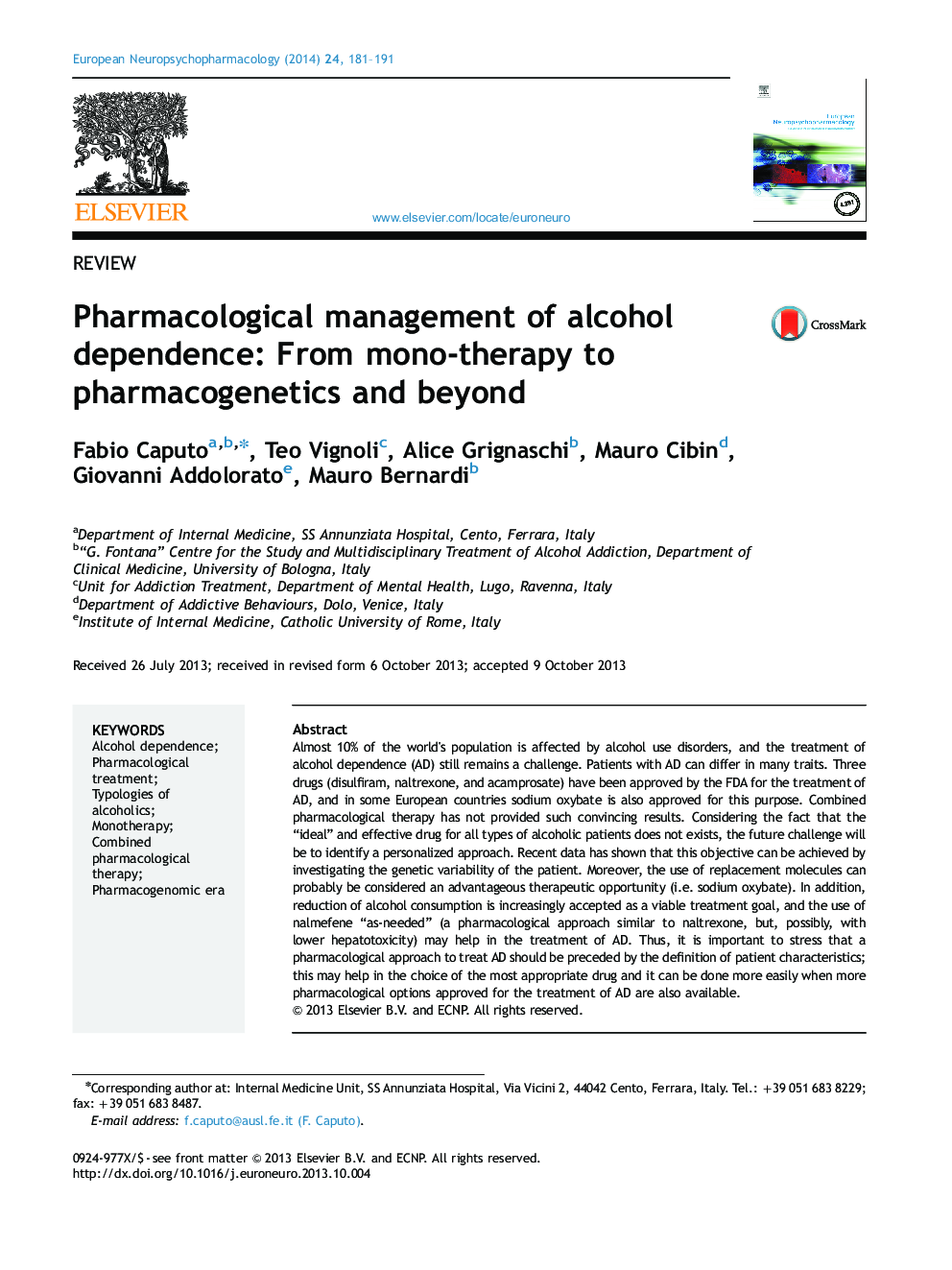| کد مقاله | کد نشریه | سال انتشار | مقاله انگلیسی | نسخه تمام متن |
|---|---|---|---|---|
| 319582 | 539523 | 2014 | 11 صفحه PDF | دانلود رایگان |
Almost 10% of the world's population is affected by alcohol use disorders, and the treatment of alcohol dependence (AD) still remains a challenge. Patients with AD can differ in many traits. Three drugs (disulfiram, naltrexone, and acamprosate) have been approved by the FDA for the treatment of AD, and in some European countries sodium oxybate is also approved for this purpose. Combined pharmacological therapy has not provided such convincing results. Considering the fact that the “ideal” and effective drug for all types of alcoholic patients does not exists, the future challenge will be to identify a personalized approach. Recent data has shown that this objective can be achieved by investigating the genetic variability of the patient. Moreover, the use of replacement molecules can probably be considered an advantageous therapeutic opportunity (i.e. sodium oxybate). In addition, reduction of alcohol consumption is increasingly accepted as a viable treatment goal, and the use of nalmefene “as-needed” (a pharmacological approach similar to naltrexone, but, possibly, with lower hepatotoxicity) may help in the treatment of AD. Thus, it is important to stress that a pharmacological approach to treat AD should be preceded by the definition of patient characteristics; this may help in the choice of the most appropriate drug and it can be done more easily when more pharmacological options approved for the treatment of AD are also available.
Journal: European Neuropsychopharmacology - Volume 24, Issue 2, February 2014, Pages 181–191
